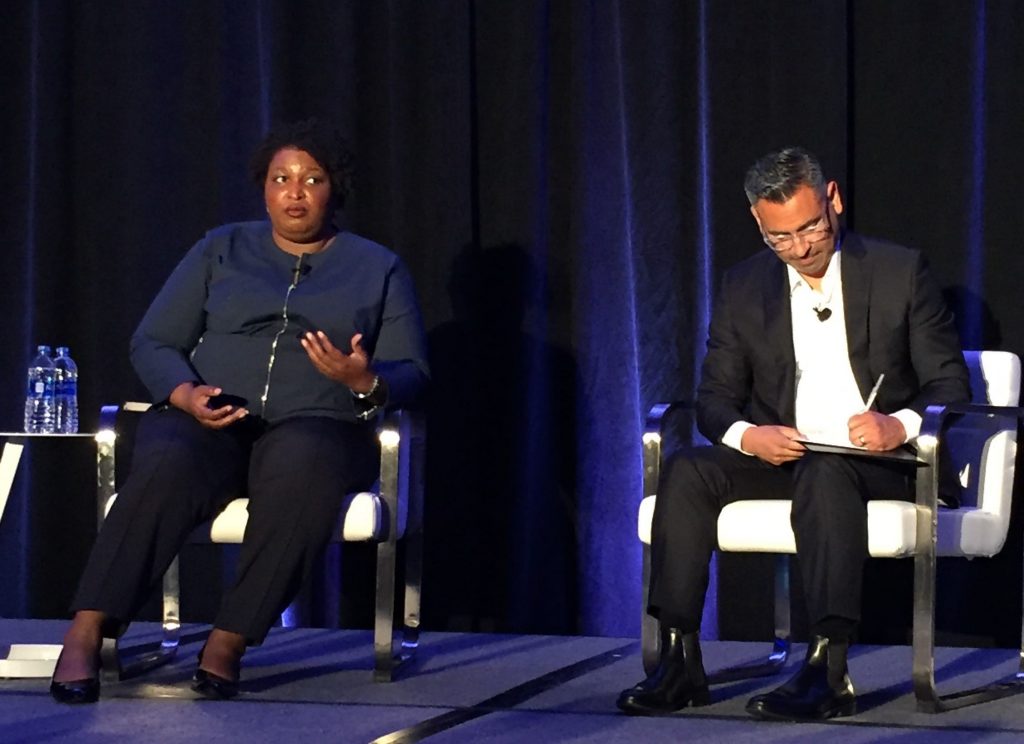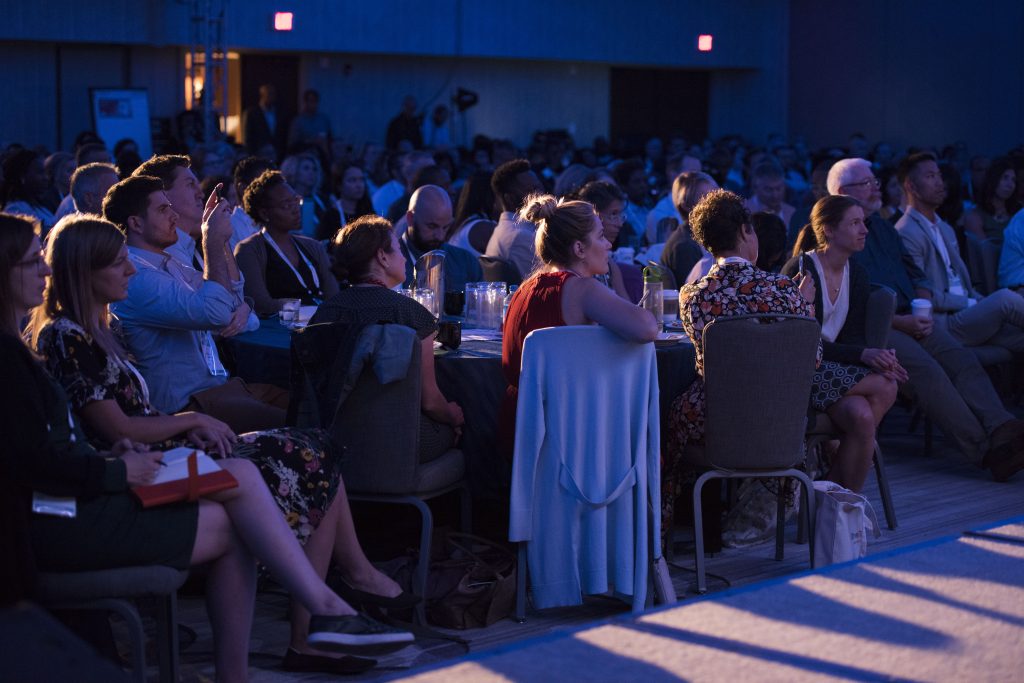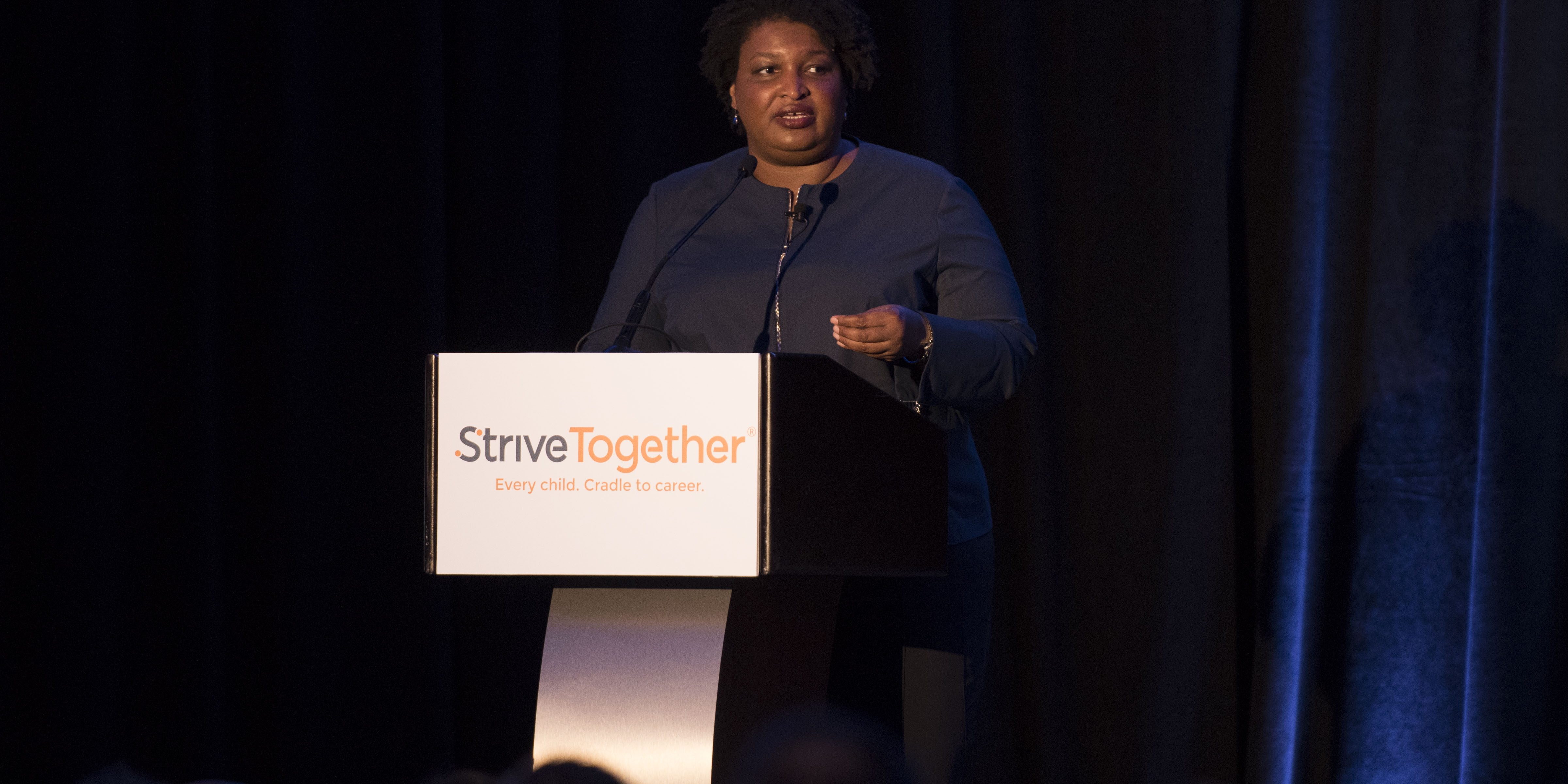“Public education saves lives,” said activist, author and civil rights leader Stacey Abrams. “I come from a story of miracles because my parents were saved — their lives were saved by public education.”
Even before Abrams set foot in the jam-packed ballroom at the 2019 StriveTogether Cradle to Career Network Convening in Washington, D.C., the crowd was already cheering for her arrival and ready to learn from her experiences.
As she shared stories of her own childhood in Mississippi and how her parents grew up, Abrams underlined the importance of public education and the ecosystem of supports that are necessary to lift people to their full potential — from strong, supportive mentors and family members to food security, housing, health care and basic needs like clean clothes.
Her lessons on leadership were not just inspiring, but they resonated with the work of network members in communities across the nation. Here are a few of her motivating insights:
Find places of common cause to get things done
 Lesson #1: “Ideology is not the same as intention.” Abrams shared stories of not settling for just fighting back against a bad bill but working with legislators across the aisle to find solutions, because she wasn’t going to be blinded by ideology but instead stayed focused on results. The difference between ideology and intention is an important message for anyone working across sectors to achieve better, more equitable results.
Lesson #1: “Ideology is not the same as intention.” Abrams shared stories of not settling for just fighting back against a bad bill but working with legislators across the aisle to find solutions, because she wasn’t going to be blinded by ideology but instead stayed focused on results. The difference between ideology and intention is an important message for anyone working across sectors to achieve better, more equitable results.
“I don’t believe in conversion,” she said. “I don’t try to make them agree with me. I try to find places of common cause where you can make advances. I believe in incrementalism. You’re not going to get everything you want at once, but you can get more of what you need the longer you’re willing to work at it.”
As our cradle-to-career partnerships work to transform systems, a focus on changing mindsets, beliefs and mental models can yield long-lasting impact, but it can’t happen overnight. Instead of focusing solely on changing hearts and minds, our communities can — and are — changing systems: changing policies, shifting funding and disrupting power structures.
Speak the whole truth
Lesson #2: “Transparency is essential to transformation.” Abrams encouraged us to be willing to admit our mistakes, own our responsibility in our successes and our failures, and hold ourselves accountable by measuring ourselves against real numbers.
Public accountability is no stranger to the StriveTogether Cradle to Career Network. As Abrams said, “Collective impact partnerships have at their core the notion we are in this together and the work that has to be done has to make certain that everyone has a stake.” To help everyone to truly own their role, our cradle-to-career partnerships use data as a flashlight to illuminate gaps and mobilize people into action to create opportunities for kids of color and kids from low-income families.
Her push to be vulnerable and admit our failures and mistakes is critical. We have to be more willing to admit our shortcomings and invite others in to help find solutions. StriveTogether’s own racial equity journey is a powerful example of learning from failure and not allowing that failure to be fatal, but rather to use stumbles as lessons for improvement.

Lift up unexpected voices and show up
Lesson #3: “Lead from the outside.” Abrams has written a whole book about this, and her invitation to leaders to bring unexpected voices to the table was met with loud applause. “If you want to know how to help a struggling child, talk to a struggling child,” she said. “When we’re willing to work not with community, but in community, that’s when transformation is real.”
Her wisdom on how to influence policymakers is timely as our Network is seeing more policy wins and as we enter yet another election cycle. “Politicians respond to three things: money, peer pressure and attention,” Abrams said. As advocates, we have a responsibility to show up in the places where politicians are in public and explain the problems we’re facing through data and stories, explaining why these challenges are problems and being clear about the solutions.
As communities work to change power dynamics in communities and empower youth and families to determine their own destinies, take stock of what Abrams shared: “People do not cede power. You take it. You can’t wait for people to cede power. Power is seductive and attractive. … It’s not about getting them to cede power; it’s making sure they understand it’s not their power to hold.”
What’s next?
Abrams describes herself as a meliorist — not an optimist or a pessimist, but someone who believes that the world can be made better by human effort. Our job, she says, is to believe in possibilities and find antidotes. As unstoppable changemakers, all of us have an obligation to find common cause to get things done, speak the whole truth and lift up unexpected voices. We have to take bolder swings at policy change and learn in public.
And some of us — I’m looking at you, fellow women and people of color — need to run for something.







This is an inspiring message for me and every other person who wants to find a way to work in the community and make a change.